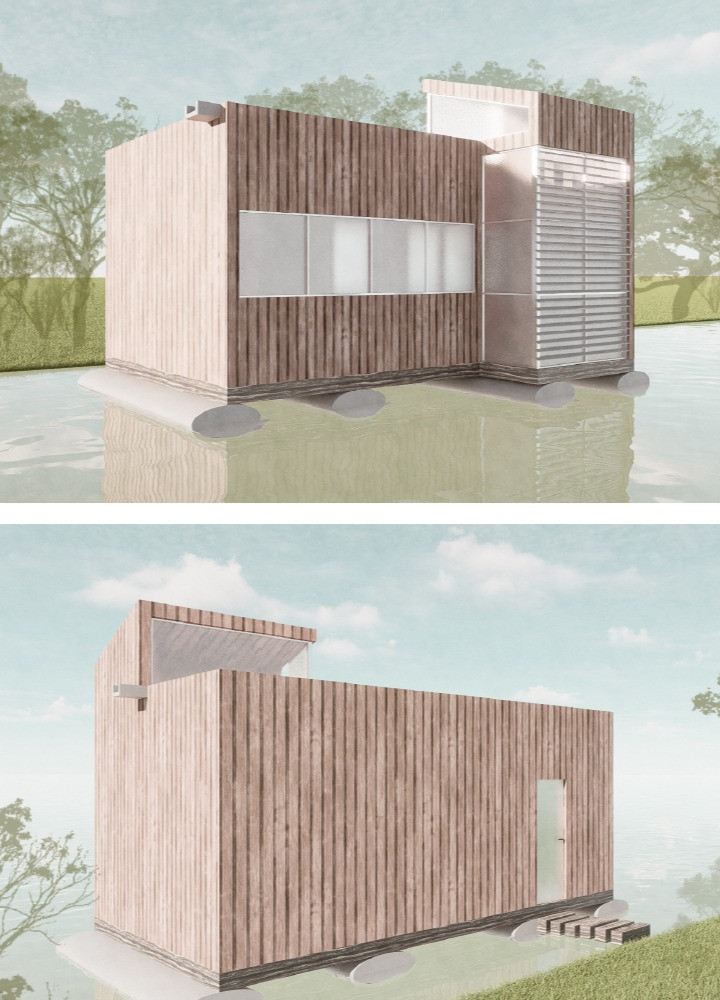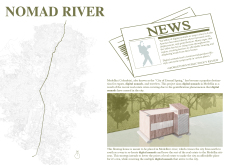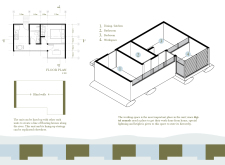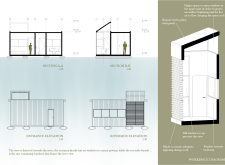5 key facts about this project
### Project Overview
Located in Medellín, Colombia, the Nomad River project is designed to address the growing demand for housing among digital nomads and expatriates. As the city faces a housing crisis intensified by gentrification and an influx of transient residents, this initiative seeks to provide innovative housing solutions along the river that flows through the urban landscape. The concept emphasizes sustainability while ensuring accessibility to the city's cultural and recreational offerings.
### Spatial Strategy and Community Integration
The design features a series of floating units that utilize the river as a living space. These structures are intended to foster community interaction while accommodating individual needs. Each unit is designed to connect with adjacent homes, creating a cohesive living environment. The careful arrangement enhances communal living while maintaining personal space, offering a balanced approach to urban residency.
### Materiality and Sustainable Practices
Material selection is integral to the project's sustainability goals. Local wood is employed for its lightweight properties and thermal insulation, reducing reliance on external resources and supporting local timber markets. The integration of solar panels on slanted roofs enables energy independence by harnessing renewable energy. Additionally, engineered flotation systems ensure the structures remain buoyant, reflecting a design ethos that aligns with environmental considerations and innovative engineering tailored to the river's conditions.






















































